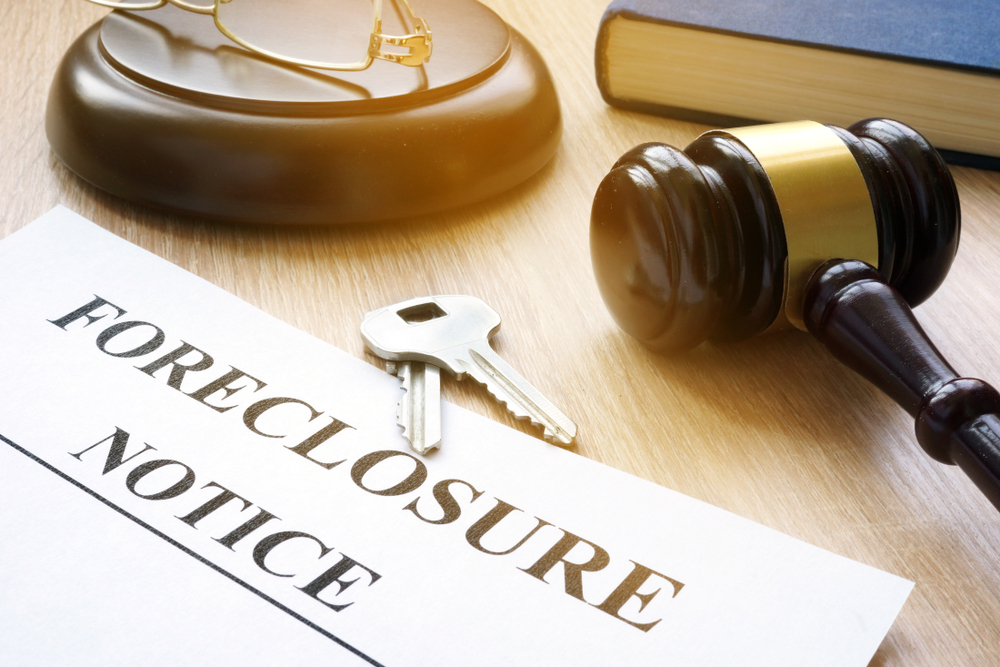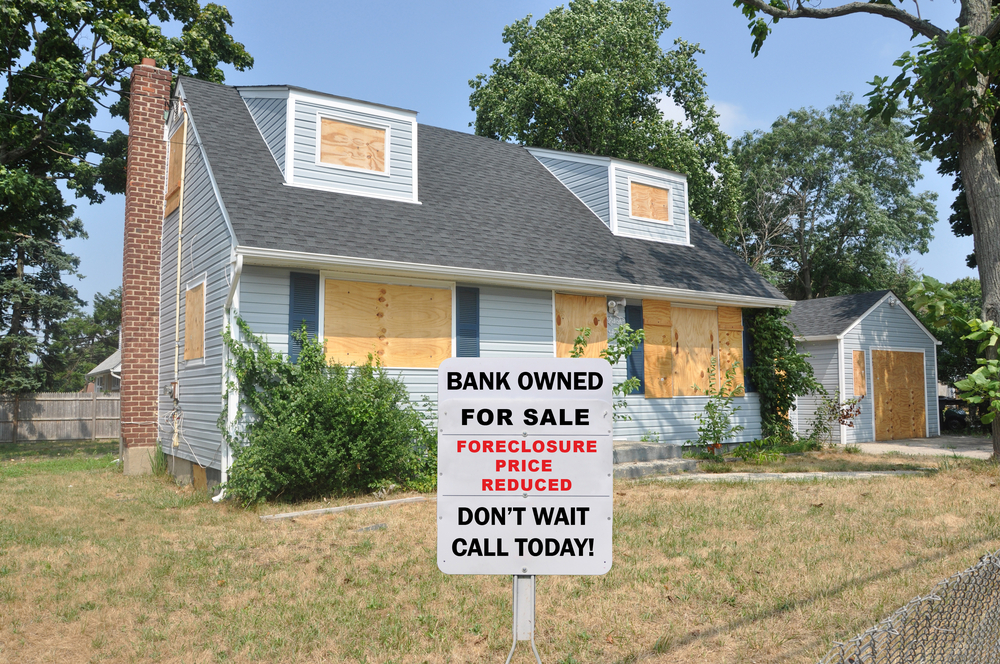If you’re at risk of losing your home, you may be wondering what your options are. You might not be eligible for a loan modification or refinancing if you have negative equity or are delinquent with your mortgage payments. Instead, consider a short sale or a deed in lieu of foreclosure.
In this article, we’ll discuss the differences between short sales for sellers and deeds in lieu of foreclosure. Both help struggling homeowners avoid foreclosure, but their repercussions are vastly different.
What is a Short Sale?
A short sale is when your lender allows you to sell your home for less than you owe on your mortgage. If you work with an experienced attorney and real estate agent, you may not need to pay back the outstanding balance to your lender.
Short sales are a great way for a financially-strapped homeowner to get out of a costly mortgage and walk away virtually free-and-clear.
To be eligible for a short sale, you must demonstrate that you’re experiencing a qualified hardship and be underwater on your mortgage. (“Underwater” is when your mortgage balance is higher than the current value of your home.)
Short sales cost you $0 out of pocket, and – assuming you work with an experienced attorney or short sale negotiator – your bank may even pay some of your relocation expenses.
Yes, a short sale will still damage your credit score, but not nearly as severely as if it would with a foreclosure.
What is a Deed in Lieu of Foreclosure?

A deed in lieu of foreclosure is seen as the last resort before foreclosure. It’s when a struggling homeowner transfers their property title over to their lender in return for forgiving the mortgage debt.
If the lender agrees to this arrangement, they become the new owner and can choose to sell the property or rent it out to the former owner.
A deed in lieu of foreclosure is an option for both homeowners and lenders to avoid a long and costly foreclosure process.
Short Sale vs. Deed in Lieu of Foreclosure
The main difference between a short sale and a deed in lieu of foreclosure is the ownership transfer. In a deed in lieu process, the property goes to the lender. During a short sale, another homebuyer is purchasing the property.
The main advantage of both options is that the homeowner avoids foreclosure. Foreclosures are devastating to your credit report and your future buying power. Sure, short sales and deeds in lieu affect your credit as well, but far less than a foreclosure.
Here is a helpful grid to show the differences between each type of transaction:
| Short Sale | Deed in Lieu of Foreclosure | |
| Credit score damage | 18 – 24 months | 4 – 7 years, depending |
| Ownership transfer | New homebuyer | Lender |
| Requirements |
|
|
| Relocation money offered | Yes, $3,000 or more | No |
| Out of pocket expenses | $0 | Yes – attorney fees
Yes – moving costs No – real estate commission Maybe – deficiency judgment |
| When do you need to leave home? | After your short sale closes | Immediately upon transfer of ownership to the bank |
Disadvantages of Deed in Lieu of Foreclosure
Before requesting a deed in lieu of foreclosure, it’s important to consider all of the ramifications.
- Deeds in lieu are damaging to your credit report. The transaction stays on your report for 4 – 7 years, depending on how your attorney negotiates it.
- Similar to a foreclosure, the bank still takes over your house and probably evicts you. Of course, this is at your request and so deeds in lieu are sometimes called “friendly foreclosures.”
- Banks don’t always forgive the mortgage debt. They may tack on a deficiency judgment, forcing you to pay back all or a portion of the mortgage over time – despite having zero ownership interest in the property itself!
- Not everybody can choose this option. A deed in lieu may only be granted if a homeowner can’t sell the house through a regular sale or a short sale.
- If you have a second mortgage or liens on your home, many lenders won’t agree to a deed in lieu.
- Lenders also don’t want to take ownership of properties that have decreased in value due to neglect or changes in the real estate market.
- The bank will probably evict you after the deed is transferred so they can sell the house.
- If you had any equity in your home to begin with, you lose it the moment you transfer your title over to the bank.
- You absolutely should hire an attorney to represent your best interests, but unlike a short sale, the lender won’t pay your attorney fees. You need to pay them out of pocket, along with your own moving costs.
When Should You Consider A Deed in Lieu of Foreclosure?

There are some circumstances when a deed in lieu is going to be your best, or only, option. For instance, if you:
- Are in a long-term financial situation that makes it impossible to keep up with your mortgage payments
- Aren’t eligible for a loan modification or refinancing
- Don’t qualify for a short sale because you have sufficient equity in your home
- Can’t find an interested buyer for your home and are unable to rent it out
- Filed for bankruptcy
- Don’t have multiple mortgages or liens on your home
- Want to avoid the judicial system’s involvement
- Are at immediate risk of foreclosure
Conclusion
Deeds in lieu are essentially the closest thing to a foreclosure except transacted at your request. Both parties avoid the judicial system’s involvement and your neighbors will never know what really happened.
So, is a deed in lieu of foreclosure worth it? If it’s your last chance to avoid a foreclosure – then absolutely, yes. But if you owe more on your home than it’s currently worth and you qualify for a short sale – take the short sale.
Short sales are fairly routine transactions. Plus, if you work with an experienced short sale listing agent and attorney, you’ll pay nothing out of pocket and your credit may be easily recoverable in 18 – 24 months.
Losing your home is a discouraging and emotionally tasking event. But there are alternatives to foreclosure that everyone should consider before throwing in the towel. Talk to a real estate agent or attorney about the best approach for your specific situation.
_____________________________
If you live in the Washington, DC metro area, call Marc Dosik and the Fed City Team to discuss your options for a short sale. Marc and his team have rescued over 130 homeowners from foreclosure proceedings. They help you sell your home and work with your lender to get the mortgage deficiency forgiven, all at no cost to you. They even negotiate with the lender to pay your relocation costs, giving you $3,000 or more cash-in-pocket to help you get back on your feet.
Avoid foreclosure. Contact Marc Dosik today!
Want to learn more about the short sale process?
Download our FREE ebook: How to Sell Your House in a Short Sale. Get your copy today!
_____________________________
Disclaimer: Every homeowner’s situation is unique, and local, state and federal laws change regularly. As such, this information should not be considered as legal, tax, financial or investment advice. Consult a qualified professional before making any financial decisions.



